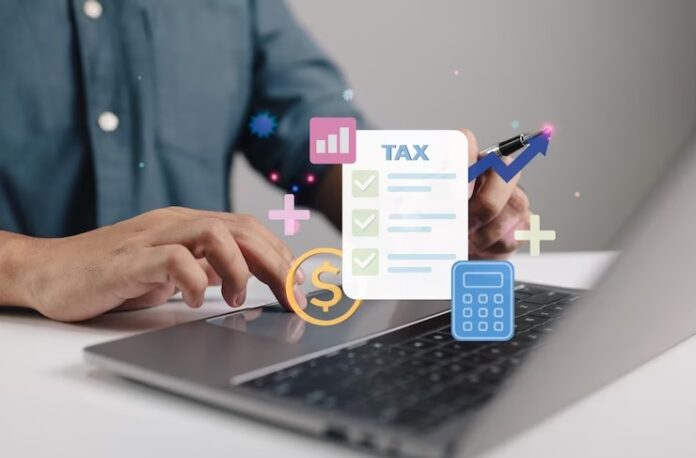Unfortunately, paying your bills can become even more difficult if you have outstanding debts. You see, your creditors can take legal steps against you to force you to pay their outstanding debts. The process by which they do this is called garnishing your wages.
If your unemployment check is being garnished, you might wonder if unemployment benefits can be garnished in the first place. If so, what other types of garnishments are there?
Sounds complicated? It isn’t. Keep reading to learn more about if can unemployment be garnished.
How Does Wage Garnishment Work?
Table of Contents
Wage garnishment is the legal procedure in which the wages of an employee are deducted to cover unpaid debt obligations. The courts may require the employer to garnish the employee’s wages. This is if they fail to pay taxes, child support, court-ordered debt, student loans, or other bills.
Taxes such as taxes on income or sales can be garnished from an individual’s wages. When wages are garnished, the employer will deduct the debt amount from the employee’s paycheck and send it to the creditor or government agency. The amount taken is determined by a court order. Unemployment benefits can also be subject to garnishment.
This means that the Department of Labor may require the employer to deduct certain amounts from the individual’s benefits to pay for debts owed. The amount taken is determined by the Department of Labor and can vary. Click here to know more about unemployment wage garnishment.
Are Other Benefits Protected From Being Garnished?
Certain federal benefits are protected from being garnished by the IRS, including Social Security, SSD, and certain veterans’ benefits. It is important to know that if the IRS does garnish other benefits, the money is not necessarily taken away from the taxpayer. Instead, the money goes to the IRS and is applied toward the taxpayer’s unpaid taxes.
Likewise, certain states and jurisdictions provide general exemptions from garnishment. So be sure to check with these government entities to see what is or isn’t exempted from garnishment.
Unemployment benefits, however, may be garnished if the payments are being made to cover prior debts. If a garnishment is in effect, it is important to make sure that only the required amount is paid to the IRS, no more and no less.
When Can Unemployment Be Garnished?
Unemployment benefits can be garnished when certain conditions are met. It is important to stay on top of your debts and obligations so that there are no unexpected garnishment deductions from your unemployment benefits. Here are some of the times when unemployment can be garnished.
Child or Spousal Support
When it comes to a child or spousal support, the IRS is quite particular about the payments made to individuals obligated to pay the amount due. An individual’s tax bill may be the source of garnishment. This is if the individual has not paid their child or spousal support for an extended period.
In this case, the wages and other income the individual pays taxes on can be garnished by the IRS to pay the child or spousal support that is overdue. Unemployment benefits may also be garnished if the individual receiving them is found to owe delinquent child or spousal support payments. Collection methods used by the IRS are typically automated, meaning that pay can be taken directly from the individual’s paycheck or directly from their bank account.
Court-ordered Debt
When it comes to court-ordered debt, many people may be surprised to learn that unemployment benefits can be garnished to pay off debts. In most cases, garnishment of unemployment benefits for court-ordered debts can only happen if the individual has received a Notice of Garnishment from the court clerk.
To begin the garnishment process, the court must decide if the individual can pay the debt. If so, the court will decide what amount of unemployment benefits may be garnished and the rate of garnishment from each benefit payment.
It also includes the length of time the garnishment will last. It is important to remember that the garnishment of unemployment benefits for court-ordered debts will always be limited to the amount allowed by law.
Other Bills
Other Bills can be garnished from unemployment funds when the IRS has put a Form 668-W (garnishment) into effect. This document notifies the employer that the employee’s wages, including unemployment benefits, could be garnished. When Form 668-W is in effect, employers are required to garnish the prescribed amount from the unemployment wages of the employee.
Then, they should remit it to the IRS directly. In addition to unemployment funds, other sources of income may also be garnished to satisfy a Tax Bill including Social Security benefits, pensions, and other retirement benefits. Furthermore, an unpaid tax bill can lead to a Levy.
A Levy is a situation where the IRS can unfreeze wages or assets in a bank account and directly use them to pay the tax bill. Employers can usually unfreeze wages as soon as they receive the Levy Notice. Although garnishment of unemployment can occur when the IRS has relevant documentation, nonpayment of Tax Bills can lead to a much more severe situation.
Can I Put a Stop to Garnishments?
Garnishments are issued by the Internal Revenue Service (IRS). When wages are garnished, the employee’s net income is reduced by the amount of the garnishment. As with any other debt, the IRS retains the right to garnish unemployment benefits to pay for unpaid taxes. To avoid garnishments, it is important to stay on top of your taxes and address any tax debts on time.
It is important to note that there are limits to the amount of garnishment the IRS can take from unemployment benefits. This limit is determined by state laws as they vary by state. When it comes to putting a stop to garnishments, one way to do this is to enter into an installment agreement with the IRS and make payments regularly.
You may also qualify for a partial payment or an offer in compromise with the IRS. The best way to offset garnishments and manage your debts is to resolve the issue as soon as you can. Acting quickly will help to reduce the time garnishments are in place, protect your property and credit, and ultimately move you to a better financial situation.
Can My Unemployment Receive Protection From Wage Garnishment?
Generally speaking, most types of unemployment benefits are not subject to garnishment. In some cases, only the most essential benefits such as Social Security Income or SSI are protected from garnishment. According to the U.S. Department of Labor, only certain garnishments are allowed.
If your unemployment benefits do not come from these protected systems, they could be garnished. So it is important to investigate the source of your benefits to determine if they are protected from garnishment. In general, to receive protection from wage garnishment, your unemployment benefits must be considered the most essential form of income to be protected.
How to Handle Garnished Unemployment?
If you’re unemployed, it’s important to understand how you’re affected by tax bills and garnishment laws. According to the IRS, your unemployment benefits may be subject to federal tax withholding. You may be responsible for reporting it on your taxes.
The IRS also states that unemployment benefits may be subject to garnishment if you owe back taxes, child support, or student loans. When it comes to how to handle garnished unemployment benefits, you’ll need to contact the agency that’s garnishing your funds.
This is to discuss your payment options. You may also be able to dispute the garnishment in court. In other cases, filing for bankruptcy or submitting an offer in compromise can offer financial relief.
Your financial situation is unique and understanding how garnishment laws apply to you is important. Speak with a qualified tax professional to ensure you’re taking the appropriate steps toward resolving your debt.
What Are the Things to Keep in Mind When It Comes to Garnishment?
When it comes to garnishment of unemployment funds, there are several things to keep in mind. First, individuals must be aware of their state taxation laws. Usually, state and local taxes do not apply to unemployment benefits.
However, care must be taken to make sure of this. In addition to taxes, garnishment inquiries should include any other debts owed by the taxpayer. It’s essential to determine if the income from unemployment is exempt from garnishment.
This could potentially be withheld from the unemployment payment. Additionally, individuals should contact the garnishing agency to confirm the reduction of payment from the taxpayer’s account. Lastly, individuals should always be prepared for the withholding of money from their accounts and understand the process of how garnishment works.
What Are the Exact Amounts That Can Be Garnished
The exact amount of unemployment benefits that can be garnished varies but is typically around 25 percent in most states. The amount that can be garnished from unemployment benefits is subject to certain limits on the amount of money. Which can be taken from the employee’s pay for such deductions.
Generally, it is 25 percent of wages or earnings received from the employer, which can be taken from each pay period. Some states may also permit garnishment of up to 50 percent for certain debts.
These include such as child support and alimony. No garnishment can exceed the amount that would leave the employee with less than the federally-mandated minimum wage after taxes.
What Are the Different Types of Wage Garnishment
When it comes to garnishments, there are various types that employers can implement during the payroll process. Income tax garnishment takes a certain amount of an employee’s wages and submits it to the federal government as back taxes owed. Child support also falls under the category of garnishment.
This occurs when a court orders the employer to withhold a portion of an employee’s pay to meet the ongoing support obligations. Finally, wage garnishment can be used to satisfy loans, credit card debt, or judgments stemming from unpaid debt. Unemployment can be garnished if a person is collecting benefits while also working for an employer.
If a court order is issued, the employer must abide by it and deduct funds from the employee’s wages to remit to the party entitled to repayment. All garnishments must also follow state and federal laws.
Can a Lawyer Help With Unemployment Garnishment
A lawyer can certainly provide guidance and assistance if you are facing unemployment garnishment. They are experts in matters related to taxation and will be able to advise you on the best strategy. This is to stay compliant with the law and also to protect your assets.
The first step a lawyer can take is to review your tax bill to ensure it is accurate and that all relevant taxes are being paid correctly. They can also explain your rights and provide advice on how to possibly avoid such garnishments if applicable. Additionally, attorneys can discuss with the tax collectors on your behalf and negotiate wages, penalties, and payment plans.
Which may affect your ability to pay off the debt. They may also be able to successfully challenge the garnishment if they can prove there was a mistake in the claim or if there was a violation of your rights.
Knowing the Answers To: Can Unemployment Be Garnished?
Tax bills can be difficult to manage, however, if you understand the ins and outs of the rules, you can be better equipped to deal with them. In regards to garnishment, the good news is that your unemployment benefits cannot be taken away from you to pay off a tax bill.
So if you find yourself in this situation, don’t worry and be sure to take the time to understand your options. For additional assistance, contact a tax specialist. They can help you understand if you still have questions regarding if can unemployment be garnished.
If you want to read more interesting articles, visit our blog.











